Adil Najam
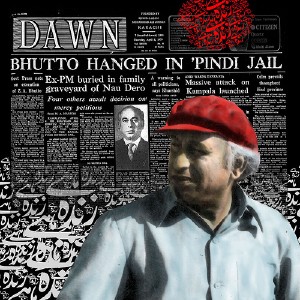 Today, April 4, marks the death anniversary of Zulfiqar Ali Bhutto.
Today, April 4, marks the death anniversary of Zulfiqar Ali Bhutto.
There is probably no other political figure since Mohammad Ali Jinnah who has left as deep and lasting a shaddow on Pakistan politics as Zulfiqar Ali Bhutto (ZAB). You can love him or hate him, but you cannot possibly ignore him.
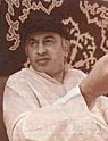

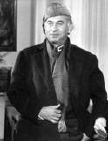
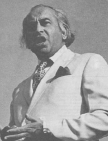
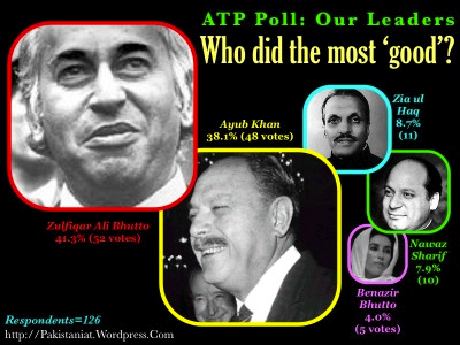
Those who love him, love him with a passion that few – if any – other Pakistani leaders evoke. Those who hate him – and many seem to do – do so with equal ferocity. No one I know is indifferent to him.

 I use the words “love” and “hate” because the intensity of people’s views on him cannot really be captured by dispassionate terms such as “like” and “dislike” alone. Whatever else we might think of him, no one can deny his intensity, or the intensity with which Pakistanis of all generations – including those who have never even seen him – talk about him.
I use the words “love” and “hate” because the intensity of people’s views on him cannot really be captured by dispassionate terms such as “like” and “dislike” alone. Whatever else we might think of him, no one can deny his intensity, or the intensity with which Pakistanis of all generations – including those who have never even seen him – talk about him.
So today, on his death anniversary, let me not talk about my views on him. Let him talk to us himself. In his own words and in his own unique and passionate style.
Manzoor Ali Shah
 Amir Haider Hoti was sworn in on tuesday as the newly elected Chief Minister of NWFP. This for the first time in 61-year-long history of Pakistan, brings Awami National Party (ANP) led government in power in NWFP.
Amir Haider Hoti was sworn in on tuesday as the newly elected Chief Minister of NWFP. This for the first time in 61-year-long history of Pakistan, brings Awami National Party (ANP) led government in power in NWFP.
The ANP rise to the power marked the end of hardliner religious alliance Mutthahida Majlis Amal (MMA) five years rule in the province, who came to the power after sweeping 2002 polls after the US invasion of Afghanistan.
ANP banked on the wave of militancy in the province during the election campaign and promised to bring back peace to the province. The party gained nearly 30 seats in the provincial legislature and formed a coalition government with the Pakistan Peoples Party (PPP).
Read Full Post
Irum Sarfaraz
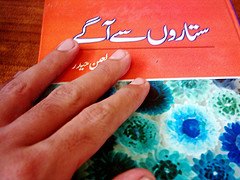 The term brain drain was coined by the spokesmen of the Royal Society of London to describe the outflow of scientists and technologists to the United States and Canada in the early 1950s. Since then the term has become synonymous with human capital or the migration of highly educated individuals from the developing, mostly third world countries, to the developed ones.
The term brain drain was coined by the spokesmen of the Royal Society of London to describe the outflow of scientists and technologists to the United States and Canada in the early 1950s. Since then the term has become synonymous with human capital or the migration of highly educated individuals from the developing, mostly third world countries, to the developed ones.
 Over the past few decades, more since Pakistan has been lurched full throttle into economic and political chaos, the phenomenon has become the bane of the society. The number of repining Pakistanis who wish to settle abroad is rising every year and the ones who are actually capable of breaking loose are coincidentally the educated ones, contributing alarmingly to the growing crisis of the Pakistani brain drain. To leave the country and settle abroad has become the zeitgeist of current day Pakistan.
Over the past few decades, more since Pakistan has been lurched full throttle into economic and political chaos, the phenomenon has become the bane of the society. The number of repining Pakistanis who wish to settle abroad is rising every year and the ones who are actually capable of breaking loose are coincidentally the educated ones, contributing alarmingly to the growing crisis of the Pakistani brain drain. To leave the country and settle abroad has become the zeitgeist of current day Pakistan.
Read Full Post
 Today, April 4, marks the death anniversary of Zulfiqar Ali Bhutto.
Today, April 4, marks the death anniversary of Zulfiqar Ali Bhutto.



![]()
 I use the words “love” and “hate” because the intensity of people’s views on him cannot really be captured by dispassionate terms such as “like” and “dislike” alone. Whatever else we might think of him, no one can deny his intensity, or the intensity with which Pakistanis of all generations – including those who have never even seen him – talk about him.
I use the words “love” and “hate” because the intensity of people’s views on him cannot really be captured by dispassionate terms such as “like” and “dislike” alone. Whatever else we might think of him, no one can deny his intensity, or the intensity with which Pakistanis of all generations – including those who have never even seen him – talk about him.

 Amir Haider Hoti was sworn in on tuesday as the newly elected Chief Minister of NWFP. This for the first time in 61-year-long history of Pakistan, brings Awami National Party (ANP) led government in power in NWFP.
Amir Haider Hoti was sworn in on tuesday as the newly elected Chief Minister of NWFP. This for the first time in 61-year-long history of Pakistan, brings Awami National Party (ANP) led government in power in NWFP.
























































